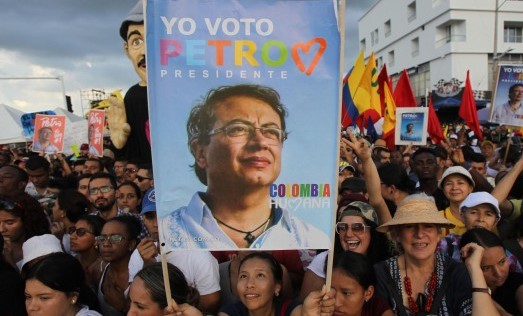Following victories for left presidential candidates in Bolivia, Peru, and Chile and the possible return to government of Lula in Brazil, it is possible that the election in Colombia on 29th May (with a run off in June) could finally see a victory for the left. Between 2019 and 2021 the country was rocked by tens of thousands of people demonstrating against the government. Now, one of the leaders of those demonstrations could become President.
But, if elected, he will face enormous difficulties in implementing his programme and truly satisfying the aspirations of working class, poor, indigenous and black Colombians who are excluded from any power in one of the worlds most unequal countries.
In this article, Gavin O’Toole analyses the current political situation in Colombia and assesses the prospects of a future left presidency.
************************
A landmark victory by the left in Colombia’s forthcoming presidential election would represent a momentous shift in the political landscape of a country choking from a long right-wing stranglehold.
Polls indicate that Gustavo Petro (see title photo), a former guerrilla campaigning on an anti-poverty platform, could be on course for an unprecedented win in the poll, the first round of which is on 29 May, with a potential run-off in June.
This would be an earthquake in an historically conservative country that has never had a left-wing president—Colombia was a notable exception to the “pink tide” of progressive governments that came to power in much of Latin America in the 2000s.
Able to nurture an image as an outsider because of the left’s long exclusion, Petro promises to “democratise the economy”; shift away from the extraction of oil and coal, to end dependence and for environmental reasons; and resolve multiple problems bequeathed by outgoing president Iván Duque.
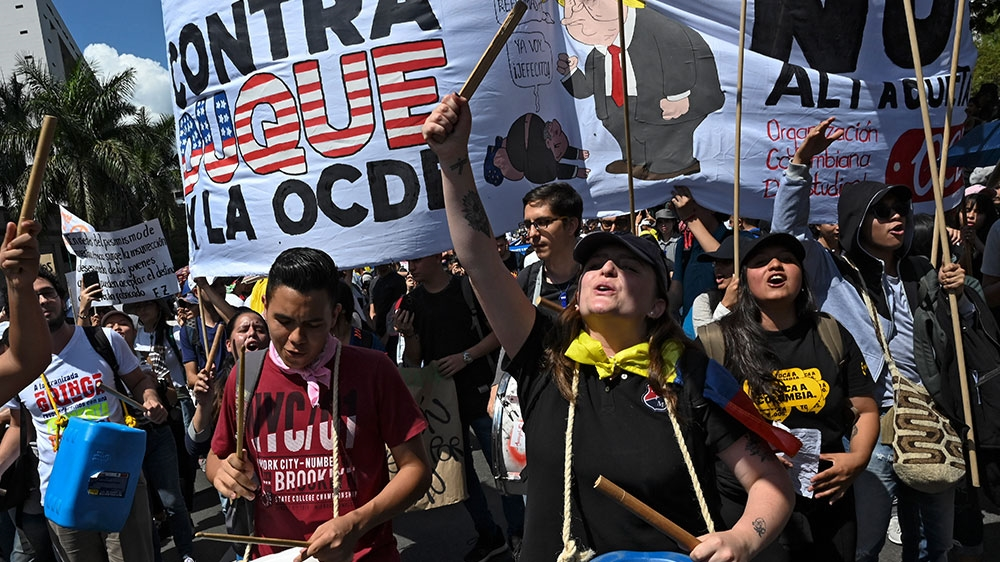
The left-wing hopeful will aim to revive a peace process purposely stalled by the unpopular Duque amid an upsurge in rural killings: armed groups and the military continue to clash over territory, and since 2016 at least 1,200 social activists have been murdered in Colombia.
However, Petro will be hampered by deep political divisions that have stoked fears of further instability in a society scarred by violence. He will face stiff resistance from an entrenched elite – landholders and business classes who have long had things their own way.
A split congress will hamper the ability of his Historic Pact (Pacto Histórico) coalition to build alliances. The right retains sufficient legislative clout to block meaningful change and will force Petro to woo centrists—something he failed to do when he was defeated by Duque in the 2018 presidential election.
March primaries
Presidential primaries and legislative elections in March showed that Colombia has changed dramatically since Petro’s first bid for the presidency.
More than 5 million people participated in the Historic Pact primaries, won by Petro with 80.5% of the vote (4.5 million ballots)—more than double that of any candidate from rival coalitions. Latest opinion polls give him the support of 44% of voters.
Federico Gutiérrez, the contender, won the primary for the centre-right Team Colombia coalition and is polling at about 27% of the vote. He is likely to narrow the gap with Petro in a second round.
In a clear sign of a country in transition, the next most popular Historic Pact candidate was environmental activist and human rights campaigner Francia Márquez, now Petro’s presidential running mate and the first black woman to stand as a presidential candidate.
While Duque’s Democratic Centre (CD) lost ground in the congressional elections, the problem facing Gutiérrez will be securing its support—and, by extension, that of Duque’s patron, the right-wing kingmaker, Álvaro Uribe—without appearing to do so.
As president from 2002–10, Uribe oversaw massive human rights violations during the civil war, but his star is fading. Packed rallies luring many young people in cities such as Medellín, in Uribe’s heartland, augur well for Petro.
Petro’s platform
Once a guerrilla with the revolutionary democratic 19th of April Movement(M-19), Petro, 61, has since clocked up a long track record in congress and was mayor of Bogotá from 2012 to 2016. M-19’s original ambitions can be seen as synonymous with his eventual trajectory—to break up a closed political system in which power has been monopolised by two sides of the same elite.
He promises to overturn the economic status quo in a deeply unequal country, where 40% of people live in poverty, through progressive taxes and an interventionist state. These plans are popular among poor Colombians hit by the pandemic and inflation—the 9.2% year-on-year inflation rate in April was the highest in 21 years.
Petro wants to raise taxes for the wealthiest Colombians and businesses, increase royalties on extractive industries, and charge landholders for unproductive land. His social policies would redistribute money from private pension funds to an extended public pension provision.
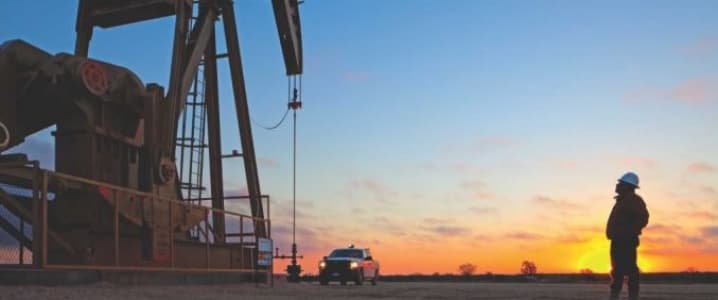
His most radical proposals concern oil, which accounts for nearly half of exports and about 10% of Colombian income. Petro pledges to halt new oil exploration, wind down the industry and push for a transition to greener jobs in manufacturing, agriculture and tourism.
Diversity
The left-wing candidate’s progress will be complicated by difficulties keeping on board potential new allies—including former Uribe supporters, former president Juan Manuel Santos, and Alfredo Saade, a Christian leader—without alienating his left-wing base.
Petro has adopted a pragmatic stance to soothe right-wing fears and has distanced himself from the governments of Cuba and Venezuela, even if right-wing alarums about “Castro-Chavismo” no longer dupe many Colombians.
He has been a key advocate of diversity, but his efforts to woo mainstream parties could risk alliances with feminist groups. Moreover, he cannot take popular support for granted—poorer groups remain uneasy about his guerrilla past.
Duque’s legacy
Given the unpopularity of Duque, whom polls suggest is disliked by at least 75% of the population, the election appears to be Petro’s to lose.
Handpicked by Uribe, Duque won the presidency on a platform opposing the 2016 peace deal with the Marxist-Leninist Revolutionary Armed Forces of Colombia (FARC) that took a major step towards ending five decades of civil war.
His tenure has been characterised by economic turmoil exacerbated by the COVID-19 crisis, which claimed at least 140,000 Colombians, with GDP plunging by 6.8% in 2020.
The incumbent president epitomises the privileged sense of entitlement among Colombia’s small conservative elite. It is Latin America’s fourth largest economy and lures ample foreign investment yet is the third most unequal society in the region, in which the top 10% of earners receive almost 40% of income. Over half of Colombians work outside the formal economy, with limited access to higher education or healthcare.
Violence and human rights abuses blight poor communities, and although Duque was elected promising a tough security policy, armed groups are over-running the countryside. This issue of endemic violence was thrown into dramatic relief by a brutal police crackdown against trade union-led protests in 2021.
Faltering peace process
Duque’s most serious failure has been undermining the peace process aiming to end a conflict that by 2018 had claimed 262,000 lives, 84% of them civilians.
The path to peace in Colombia has been protracted, but in 2016 a deal was signed between the FARC, the largest guerrilla army, and then-president Santos. British and Irish trade unionists played a key role in this remarkable achievement.
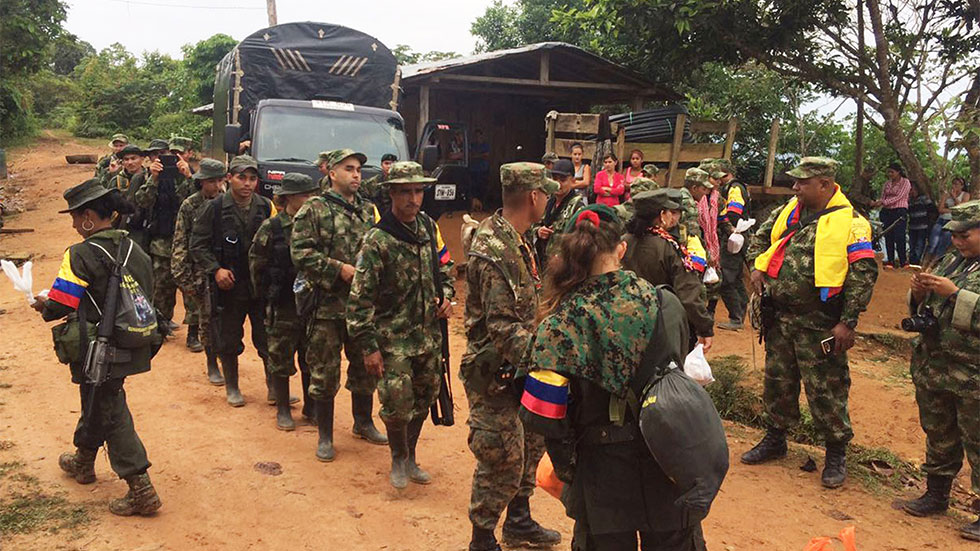
A complex menu of steps covering everything from disarmament to demobilisation was agreed. The March congressional elections represented a milestone in this process, being the first in which people could vote for 16 seats created for representatives of blighted regions.
Nonetheless, while widely seen on paper as a strong deal legally, the agreement is faltering amid right-wing hostility—while in the countryside violence fills the vacuum. Since the accord was signed, some 300 former FARC combatants have been killed.
Duque’s CD was a vociferous opponent of the deal, and his government has dragged its feet on implementing its 600 provisions.
Behind this strategy lurks the ever-present Uribe, whose presidency was associated with some of the worst aspects of the conflict and how the right has corrupted governance—links between politicians and paramilitaries, extensive human rights abuses and military impunity.
In one harrowing episode under Uribe, known as the “false positives scandal,” at least 6,402 people were murdered by the army but then falsely declared “combat kills” to boost its statistics.
Hostile foreign investors
As the presidency comes within Petro’s reach, business interests are, predictably, sounding the alarm, and there are clear signs of investor hostility to the left-wing candidate whose critics claim, baselessly, that he will send Colombia’s economy into a tailspin à la Venezuela.
Conservative politicians, traditional elites and business groups have talked up threats of “communism”, accusing Petro of plotting price controls, expropriation, forcible redistribution and central bank lending.
His plans for oil are a particular sore point as they would coincide with a bonanza from rising prices triggered by Russia’s invasion of Ukraine.
So great is the hostility that some investors are even reportedly including a clause in contracts that conditions fulfilment on his loss in the election.
The United States
The US is also likely to bridle at a left-wing victory in one of its main targets for intervention in Latin America—not least because M-19 was a dedicated foe of “yankee imperialism”.
Decades of warm relations between Colombia’s right-wing governments and Washington have been bought through US military assistance to the tune of $10bn since 2000.
Petro wants to renegotiate a free trade deal that disproportionately favours Washington, and would restore diplomatic relations with neighbouring Venezuela, which is the main target of American bile in the region.
The most important implications of a Petro win concerns drugs policy, with the candidate considering changes to Colombia’s extradition treaty with the US—a flashpoint for powerful cartels. Earlier this month, for example, armed roadblocks mounted by the feared Gulf Clan shut down large areas of northern Colombia over the extradition of its former leader.
Petro argues that counterdrug efforts over decades, in concert with Washington, have failed, with aerial eradication of coca doing nothing to cut the flow of cocaine northwards, and proposes to focus instead on crop substitution.
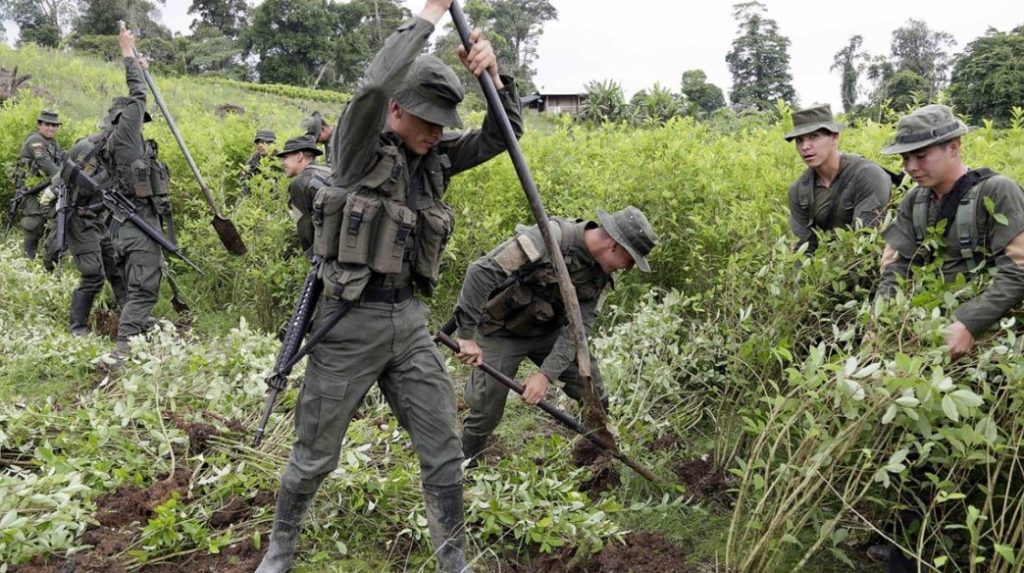
Drugs policy is critically important to bilateral relations because the US has played up associations between left-wing guerrillas and trafficking to justify militarised interference that has ultimately undermined peace efforts in a self-serving cycle of violence.
Depressingly, Joe Biden appears to offer little prospect of change, retaining a militarised anti-drug strategy at the heart of relations. Biden is said to be proud of his past role as a hard-line backer of “Plan Colombia”, the vast US military aid package that fuelled human rights abuses.
Implications of a Petro victory
No matter what fate lies in store for a Petro administration, if Colombia’s 38 million voters elect him it will have dramatic implications for the Latin American left.
First, it would signal that it can make inroads even against the most intransigent right-wing establishment, as voters—particularly urban youth—tire of a status quo built upon inequality.
Second, Petro has established the constitutional left at the heart of mainstream politics in a country where the legacy of violence has been both a cause and symptom of its exclusion. Nothing will ever be the same.
Finally, if Petro carries out his plans for oil it could have implications for an existing model of dependent extractivism immensely damaging to Latin America’s environment, and he has forged encouraging ties between the left and greens.
Risk of violence
A key fear, however, remains the risk of renewed violence targeting left-wing activists underwritten by an uncompromising right that has captured the state and military.
Colombia’s history has been punctuated by lengthy periods of bloodshed—and the left has much to worry about. In the 1980s, for example, FARC demobilised and formed a political party called Patriotic Union, which was then systematically exterminated. Up to 5,733 militants were murdered between 1985 and 1994, including two presidential candidates.
The stakes are high. Both Petro and Francia Márquez have received multiple death threats. Earlier this month, Petro suspended campaigning in central Colombia over alleged plans by paramilitaries to assassinate him. Rumours of a possible military coup or the postponement of the election have been rife.
Violence against trade unionists is systemic: Justice for Colombia points out that the country is the most dangerous place in the world to be a union activist. Over 3,000 have been murdered since 1989, and Colombia has some of the weakest workers’ rights in the world.
Future prospects for stability will, therefore, turn on how Petro proceeds. As popular expectations grow, Colombia’s yawning divisions could complicate issues of “governability” and increase the risk of renewed instability.

